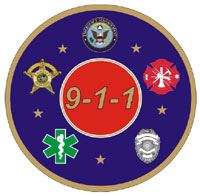- Home
- Departments
- E-911
- When to Call
When to Call
 When to Call 911
When to Call 911
- To get help for someone who is seriously injured or needs immediate medical attention
- If you see a crime in progress or about to occur
- To report a fire
- When you feel you are in danger
- When someone else is in danger, or their property is in danger
- To report an impaired driver
- To report an accident with injuries
When Not to Call 911
- To report a crime that is no longer in progress and does not require an immediate response
- To report missing property
- To report a loud party
- To report minor auto accidents and disabled vehicles
- To report telephone, cable, or power outages
- To inquire about weather, road conditions
Be Prepared
Remember when you call 911, be prepared to answer the call-taker's questions, which will include:
- The location of the emergency, including the street address
- The phone number you are calling from
- The nature of the emergency
- Details about the emergency
- Physical description of a person who may have committed a crime
- A description of any fire that may be burning
- A description of injuries or symptoms being experienced by a person having a medical emergency
Remember, the call-taker's questions are important to get the right kind of help to you quickly. Be prepared to follow any instructions the call-taker gives you. Many 911 centers can tell you exactly what to do to help in an emergency until help arrives, such as providing step-by-step instructions to aid someone who is choking or needs first aid or CPR.
Finally, do not hang up until the call-taker instructs you to. If you dial 911 by mistake, or if a child in your home dials 911 when no emergency exists, do not hang up - that could make 911 officials think that an emergency exists, and possibly send responders to your location. Instead, simply explain to the call-taker what happened.
